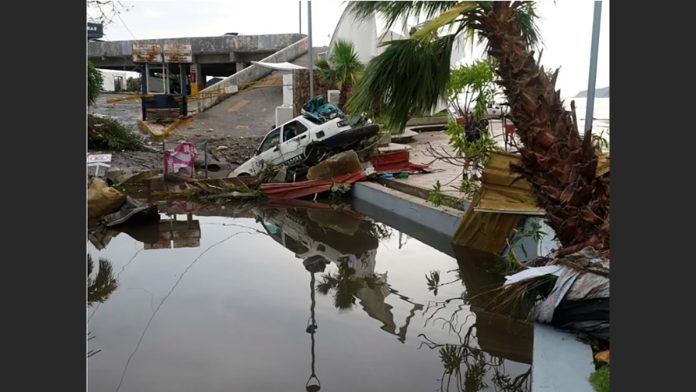In October, Hurricane Otis struck Acapulco, Mexico, leaving in its wake a city in ruins and a population grappling with the aftermath.
The unforeseen severity of the storm caught authorities off guard, hampering mitigation efforts. While the focus has been on rebuilding physical structures, the less visible but equally significant health consequences for the residents of Acapulco are becoming apparent.
The aftermath of extreme weather events such as hurricanes brings a host of challenges, from poor housing conditions and infrastructure devastation to flooding and water and food insecurity.
As global warming amplifies the frequency and intensity of these events, their effects linger, disrupting well-being long after the events themselves have subsided.
Access to water and food, essential for survival, is acutely affected by extreme weather.
Cyclones, floods, and droughts can swiftly disrupt the availability and quality of these resources, plunging households into sudden and severe insecurity.
Research is shedding light on the intricate connection between climatic shocks and mental health.
In Bangladesh, exposure to flooding increased the likelihood of depression by 31%, anxiety by 69%, and co-occurring depression and anxiety by 87%.
Particularly vulnerable are women, who often bear the responsibility of managing water and food for their households, amplifying the stress during such events.
The toll on the body is not limited to mental health. Studies on rhesus macaques in Puerto Rico after Hurricane Maria revealed accelerated aging processes, with changes in gene expression associated with aging.
Similarly, long-term effects on the stress response mechanism, known as the hypothalamic-pituitary-adrenal (HPA) axis, were observed in women exposed to the 2004 Indian Ocean tsunami, leading to “burnout” 14 years later.
Behavioral responses to water and food shortages further complicate health outcomes.
During extreme climatic events, finding safe water becomes paramount. However, changing conditions and increased advisories on water safety can foster distrust, leading to voluntary water restrictions and unhealthy alternatives like sugary sodas, exacerbating health issues.
Even the process of rehydration matters.
Research suggests that choosing sugary drinks over water in a hotter world with increased water scarcity may contribute to kidney damage.
Simultaneously, rising sea levels and saltwater intrusion pose threats to drinking water, increasing the risk of hypertension and impaired kidney function.
Addressing these challenges requires a comprehensive approach. Understanding how communities cope with shortages is essential.
Studies reveal that water-sharing networks and mutual support play crucial roles in mitigating water and food insecurity.
As governments and organizations strive to protect public health, urgent action to combat climate change, invest in resilient infrastructure, and implement safety-net programs is imperative.
Saving the environment is only part of the solution. Governments must grasp the multifaceted ways in which climate change affects health and allocate resources to vulnerable groups and communities most likely to suffer disproportionately.
Proactive investments in resilient infrastructure, early warning systems, and disaster relief programs are essential to prevent and mitigate the long-term health consequences of extreme weather events.
Climate change stands as one of humanity’s most pressing problems, and the urgency to act is evident.
Failure to address it comprehensively not only compounds the stress induced by extreme climatic events but also inflicts long-lasting damage to our biology and health.
As witnessed in the aftermath of Hurricane Otis, the true cost of climate change extends far beyond immediate physical devastation, demanding immediate and sustained action on a global scale.













